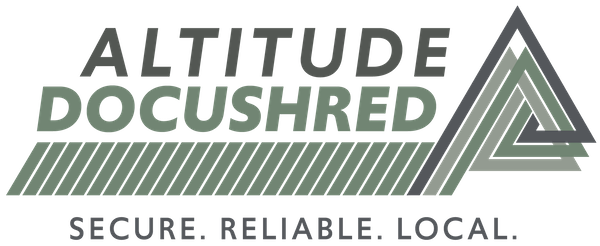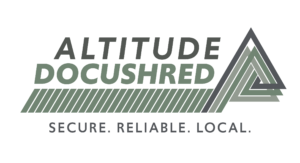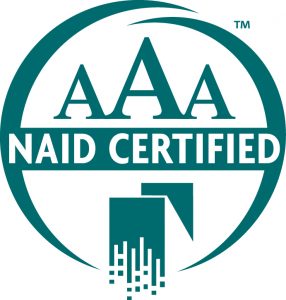ChatGPT Did Not Write This Blog.
Imagine a technology whose recipe appears to be a mix of science and sorcery. One with the ability to plan an event, create code, pass a Wharton School of Business MBA final exam, or write a short story with just one click.
Well, it’s here and it’s called ChatGPT (and, no… it did not write this blog, but it could have).
In case you have somehow managed to dodge the massive buzz surrounding OpenAI and their AI chatbot, ChatGPT, suffice to say it’s been causing a stir. If the buzz wasn’t loud enough for you to hear it before now, the volume was cranked up to earsplitting with last week’s announcement of the very first ChatGPT download for iPhones.
What is ChatGPT?
In the most basic of terms, ChatGPT (which stands for “Generative Pre-trained Transformer”) is an AI technology that uses natural language to create human-like conversation. To offer a more technical description, we defer to the experts:
“Large language models [LLM] like OpenAI’s GPT-3 are massive neural networks that can generate human-like text, from poetry to programming code. Trained using troves of internet data, these machine-learning models take a small bit of input text and then predict the text that is likely to come next.” – News.MIT.edu
Knowledge is power (and protection).
ChatGPT was recently declared as the fastest growing consumer application ever, but has been making headlines around the globe for months now. For the average person, sifting through the seemingly infinite streams of information and opinions surrounding ChatGPT can make even the most technophile among us wax nostalgic for the days of typewriters and floppy discs.
To be honest, here at Altitude DocuShred, we wondered if a document and data destruction company such as ours even has a place writing about this technology. After all, once your private and personal information is typed into ChatGPT, there’s no taking it back. No data destruction company in the world can destroy or delete it for you.
That being said, we believe information is power. We also believe information privacy, safety and security can co-exist with the latest technologies, if used responsibly. With that in mind, we hope this information will help our customers better understand this technology and offer tips for keeping personal information safe and secure while using it.
What to know before using ChatGPT for school or entertainment.
Perhaps you’re writing a novel, researching your family’s ancestry, or maybe you’re a student. If so, you might be delighted by ChatGPT’s ability to suggest creative writing topics, retrieve historical facts, or proofread term papers. Its usefulness is undeniable. But, in order to use ChatGPT responsibly, you’ll need to go in with your eyes wide open.
First, be mindful of every piece of information you share with ChatGPT. If information about yourself or others shouldn’t be made public, don’t type it in. And remember, every “conversation” with ChatGPT is used as training data, and can later show up in other people’s ChatGPT searches as cautioned here from an article at MakeUseOf.com:
It’s easy to fall into the trap of accidentally giving ChatGPT your private details without realizing it until it’s too late, especially if you use it to proofread personal or professional documents.”
“The real risk is that it collects data from your conversations with ChatGPT. When you’re using the AI, it’s extremely easy to feed it your private information by mistake. All you need to do is forget to censor a document that you ask it to proofread, and you could be in real trouble.”
What to know before using ChatGPT at work.
It’s hard to think of any job that couldn’t potentially benefit from the capabilities of LLMs like ChatGPT. With the ability to increase productivity, streamline processes, and spark creativity all in one place, it’s no wonder that’s ChatGPT has already found its way into millions of homes and business across the world.
After all, LLMs are powerfully adept at identifying and sorting massive amounts of records and data, and can instantly whittle hours of administrative work down to minutes. But, as is true with everything, there’s two sides to the coin:
“A recent Forbes article listed 27 ways businesses can use ChatGPT, including HR tasks. Examples include drafting HR policies and asking for advice on challenging situations like employee disagreements, theft and more. It’s the latest tool workers are using to get their jobs done more efficiently, but they and their managers need to be aware of possible dangers, including plagiarism, incorrect information and even security risks.” – SHRM.com
And, here’s another thought to keep in mind:
“Using ChatGPT for your work gets a little more dangerous because it will store confidential information that you type in about the company you work for, your employees, and your clients. For example, if you use it to collate feedback and organize it into a report, you might unknowingly give it your customers’ contact details.” – MakeUseOf.com
Our best advice…
Whether you celebrate or curse the advent of LLMs like ChatGPT, the fact is they’re here. And, at least as they relate to information security, the best advice we can offer to anyone who chooses to utilize them is to do so responsibly, intelligently, and mindfully – putting information privacy above all else.
We’ve said it before, and we’ll say it again, “When in doubt, don’t give it out!“
For the private information that CAN be destroyed, let Altitude DocuShred be your document, data or product destruction solution. We’ll tailor a plan to meet your unique shredding needs.
Request a quote online at AltitudeDocuShred.com or call 303.537.5401 and let us get to work for you!



